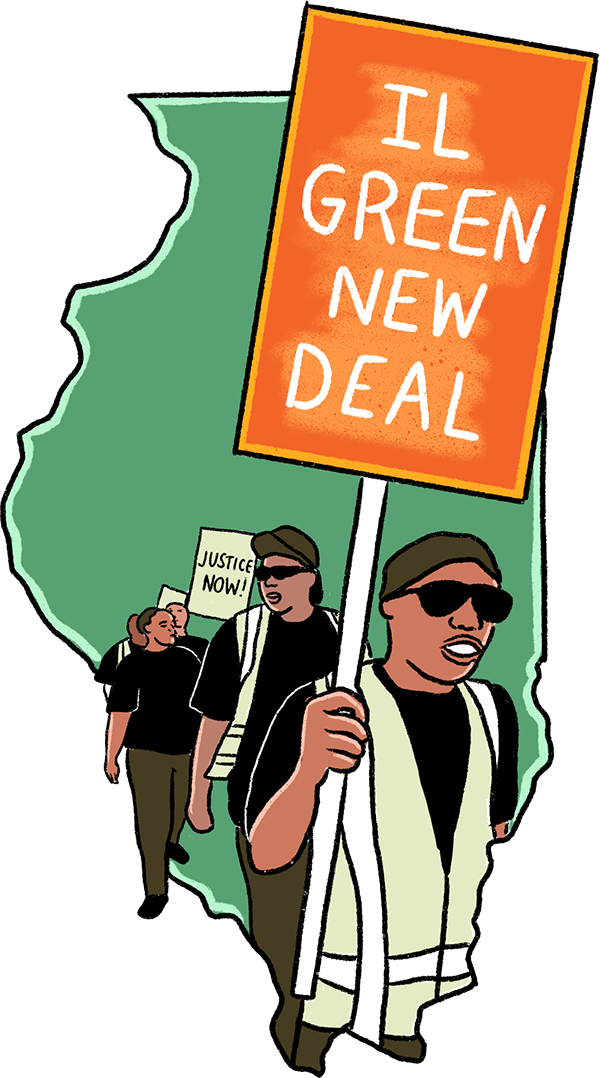Illinois Green New Deal for Social Housing.
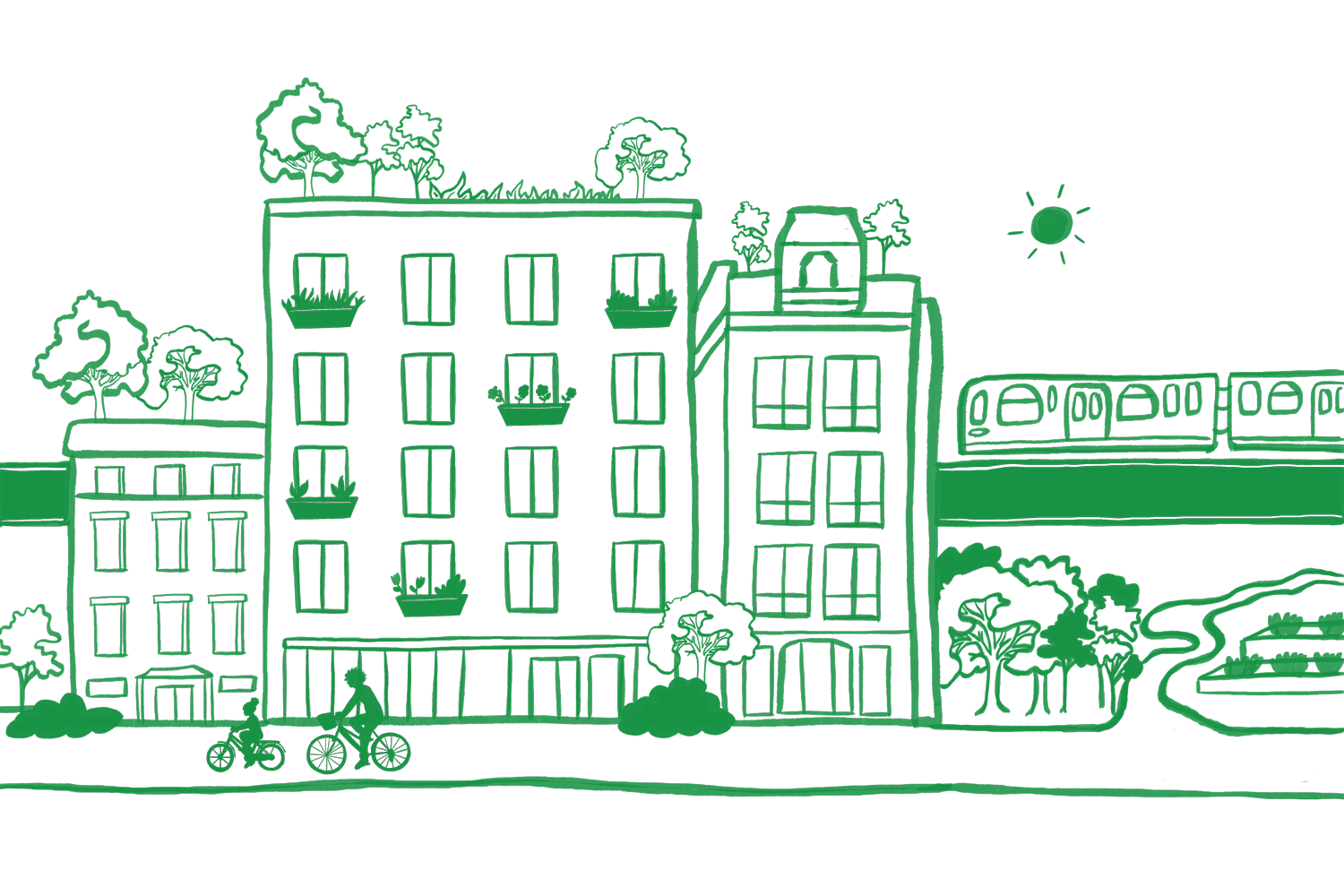
All Illinois residents deserve to live in community-owned, publicly-funded, tenant-governed, accessible, affordable, green social housing.
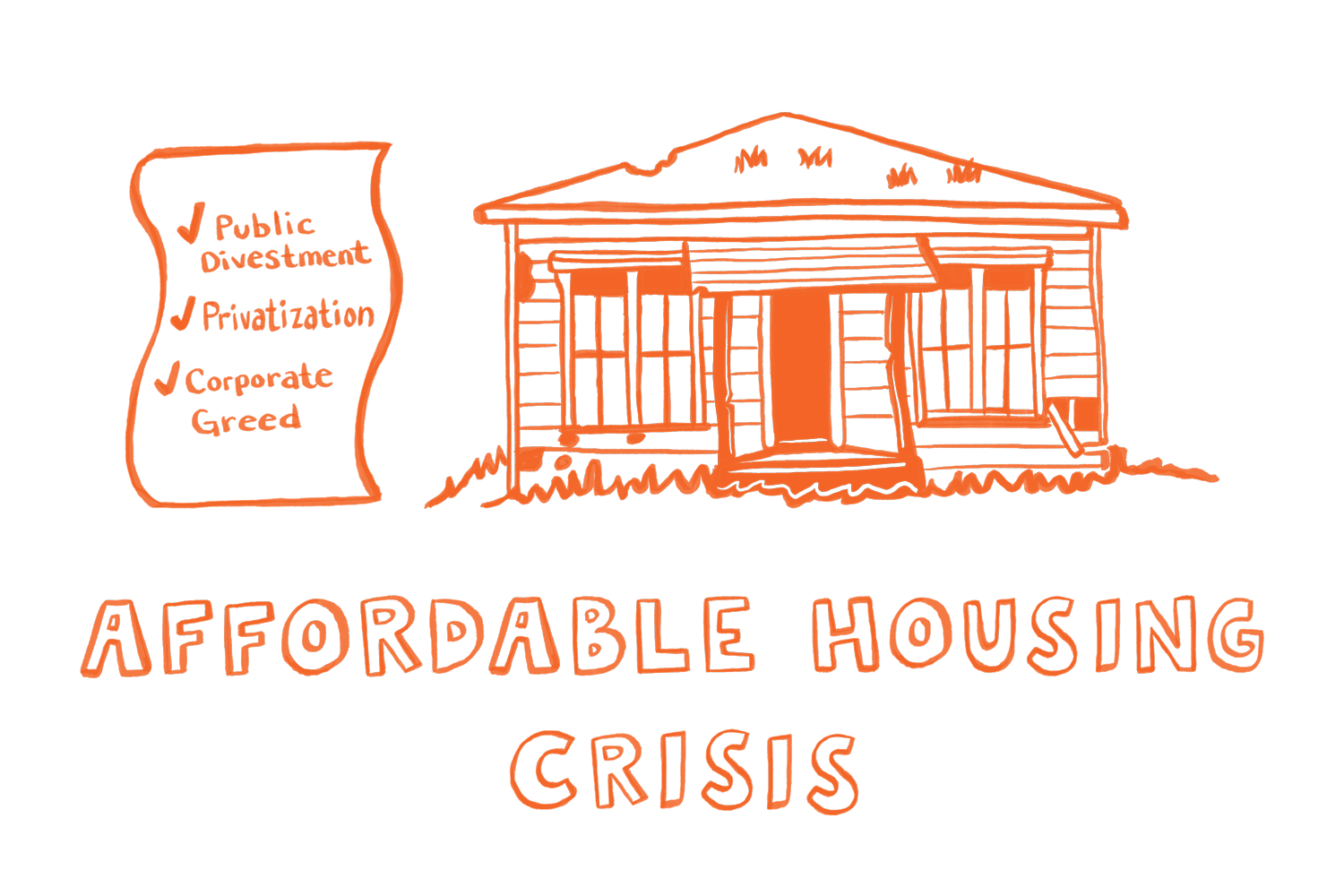
In Illinois there are 452,786 (or 27%) of renter households that are extremely low income (ELI) and there is a shortage of 288,917 rental homes that are affordable and available for extremely low income renters. We are in an affordable housing crisis driven by public divestment, privatization, and corporate greed.
The Illinois Green New Deal Coalition’s Social Housing Proposal would:
- Build, acquire, retrofit, rehab and preserve social housing that would be permanently held by community land trusts, create equity for tenants by giving them democratic control of their own housing via tenant governance boards, and be affordable in perpetuity.
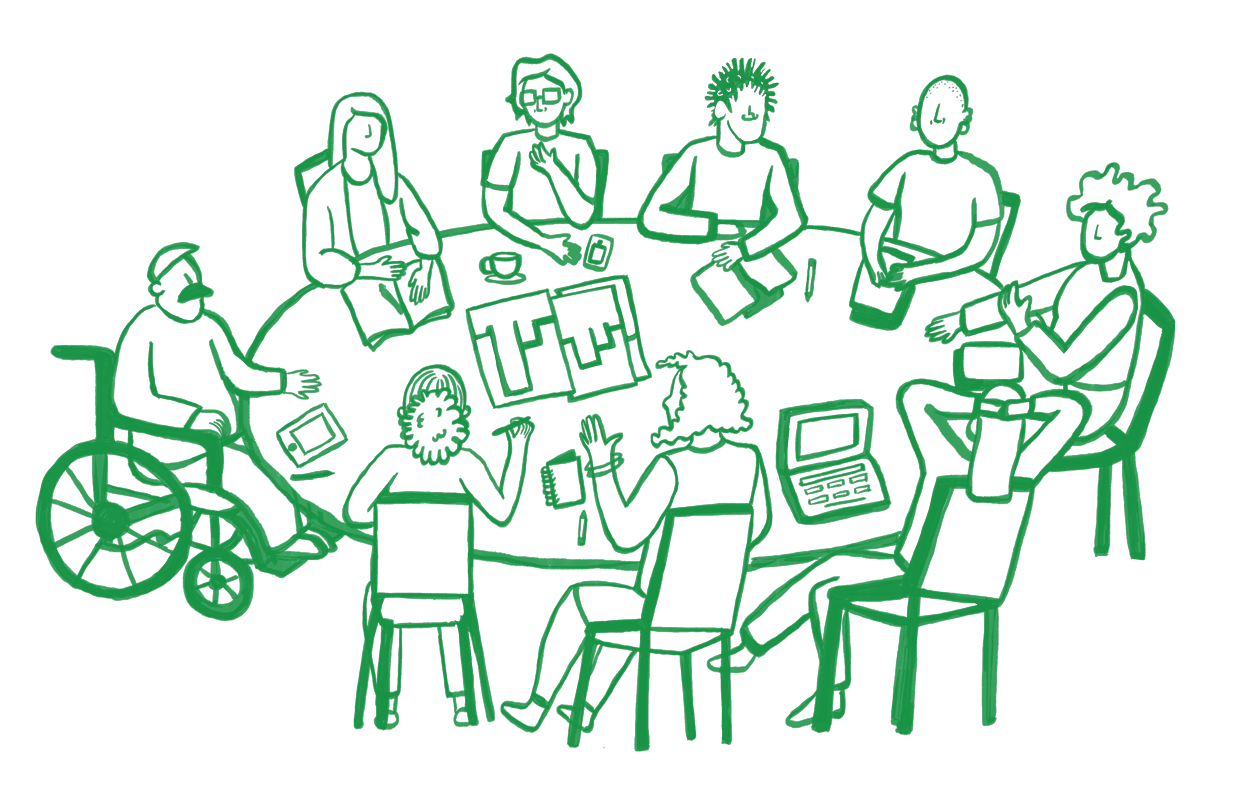
2. Create a progressive rate structure for housing costs based on the median average for rent in each county ensuring that no person or family pays more than 30% of their income in rent and rent expenses inclusive of families at various income levels.
3. Properties governed by tenant councils who have the power to review and authorize management and maintenance relationships.
4. Strong labor and environmental standards: green building, energy, and maintenance. Union labor is required to mandate prevailing wages and benefits for workers via project labor agreements. We estimate 361,146 good union jobs would be created if we built enough social housing for the 288,917 extremely low-income renters in Illinois who do not have affordable housing.
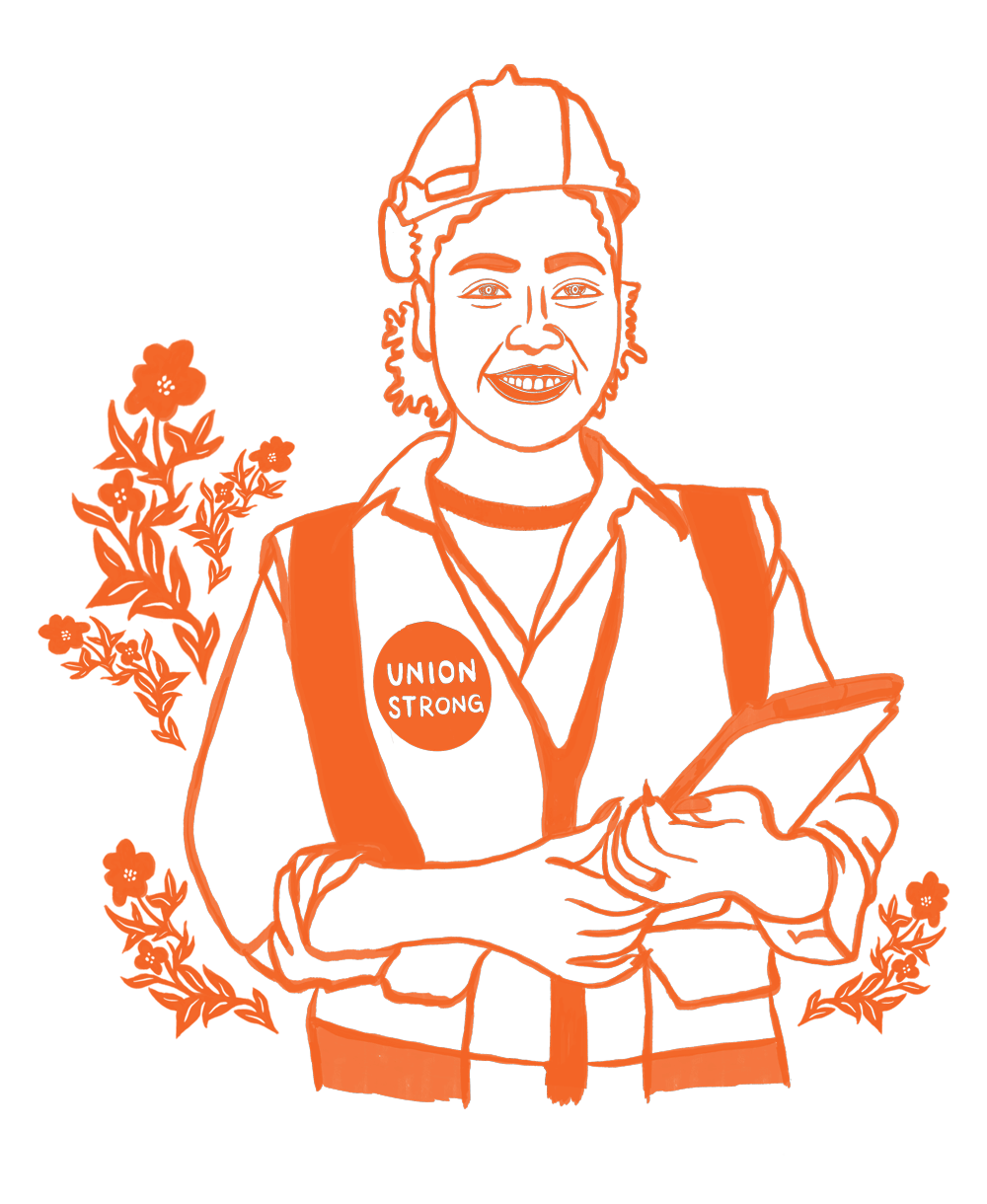
5. Just Transition provisions to protect frontline community members as well as frontline workers who are impacted by the closure of environmentally hazardous business. Frontline community members would receive direct access, input, and jobs from planning to implementation. Programs such as community benefits agreements, access to apprenticeship programs, and local hire provisions for building and maintaining the buildings and surrounding infrastructure. Create a Just Transition Fund, to provide for a wage differential, apprenticeships, and equitable job placements.
6. Establish a state executive agency, responsible for stewardship of the acquisition, construction, maintenance, and growth of social housing in all corners of Illinois.
7. Establish equity principles that will guide all social housing and ensure equitable access to that housing as it is developed.
Funding
We propose utilizing a series of revenue bonds and targeted taxes on wealthy real estate and corporate interests to create funding streams into a Trust Fund that help acquire and construct social housing projects across the state.
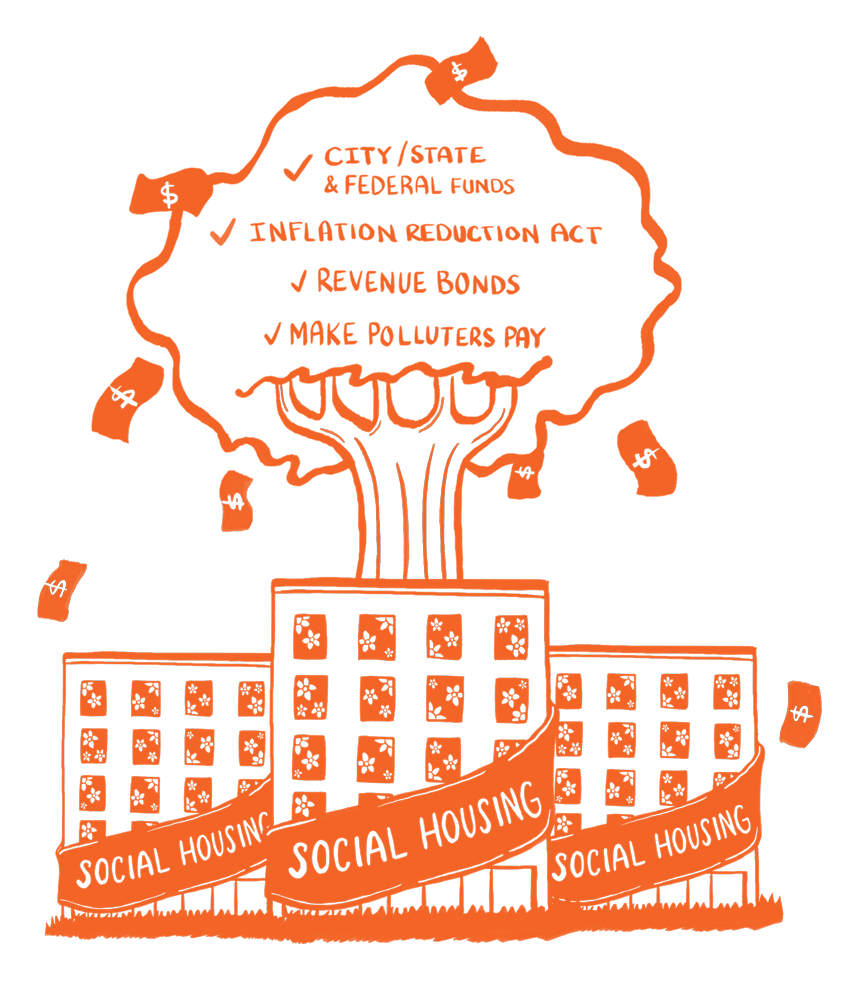
The fund would also enable long-term affordability by ensuring all land on which housing is developed is publicly- or community-owned through the development of Community Land Trusts (CLTs). This will serve as the vehicle for holding the land on behalf of the community rather than the housing agencies that have enabled much of this same disinvestment.
Unlike public housing, social housing isn’t restricted to very low-income residents. Social housing is available to low and moderate-income households, all of whom pay 30% of their income. Higher-income households pay higher rents, subsidizing lower-income households’ rents. Because unlike the private market, there is no profit motive, surplus funds allow for cross-subsidization and ongoing maintenance of the housing over time, allowing these projects and the social housing developer to be fully funded and self-sustaining.
Democracy & Equity
Each social housing development will be governed by tenant councils capable of reviewing and authorizing property management contracts and community rules. Tenant councils will enforce a set of tenant rights set at the state level. The IL Social Housing Office (ILSHO) will work with community and labor to develop equitable systems implementation and establish strong equity guidelines to protect against historical harm along racist, ableist, sexist, homophobic, and transphobic lines. The ILSHO will enforce transparency, accountability, and project labor agreements.
Environmental Justice
The legacy of redlining and environmental racism is pervasive in Illinois. Polluting industries are intentionally placed in Black and brown working-class neighborhoods, leaving residents with scarce options for clean, green and affordable housing. Meanwhile, the changing climate continues to impact the poor and working class first and worst through increased super storms, droughts, tornados, and flooding. Through social housing, communities can reclaim control and democratic control of housing, land and community resources. Social housing will be built or rehabbed to harness zero-emission power sources such as solar, wind, geothermal, food security through on-site greenhouses, and other measures as chosen by the community.
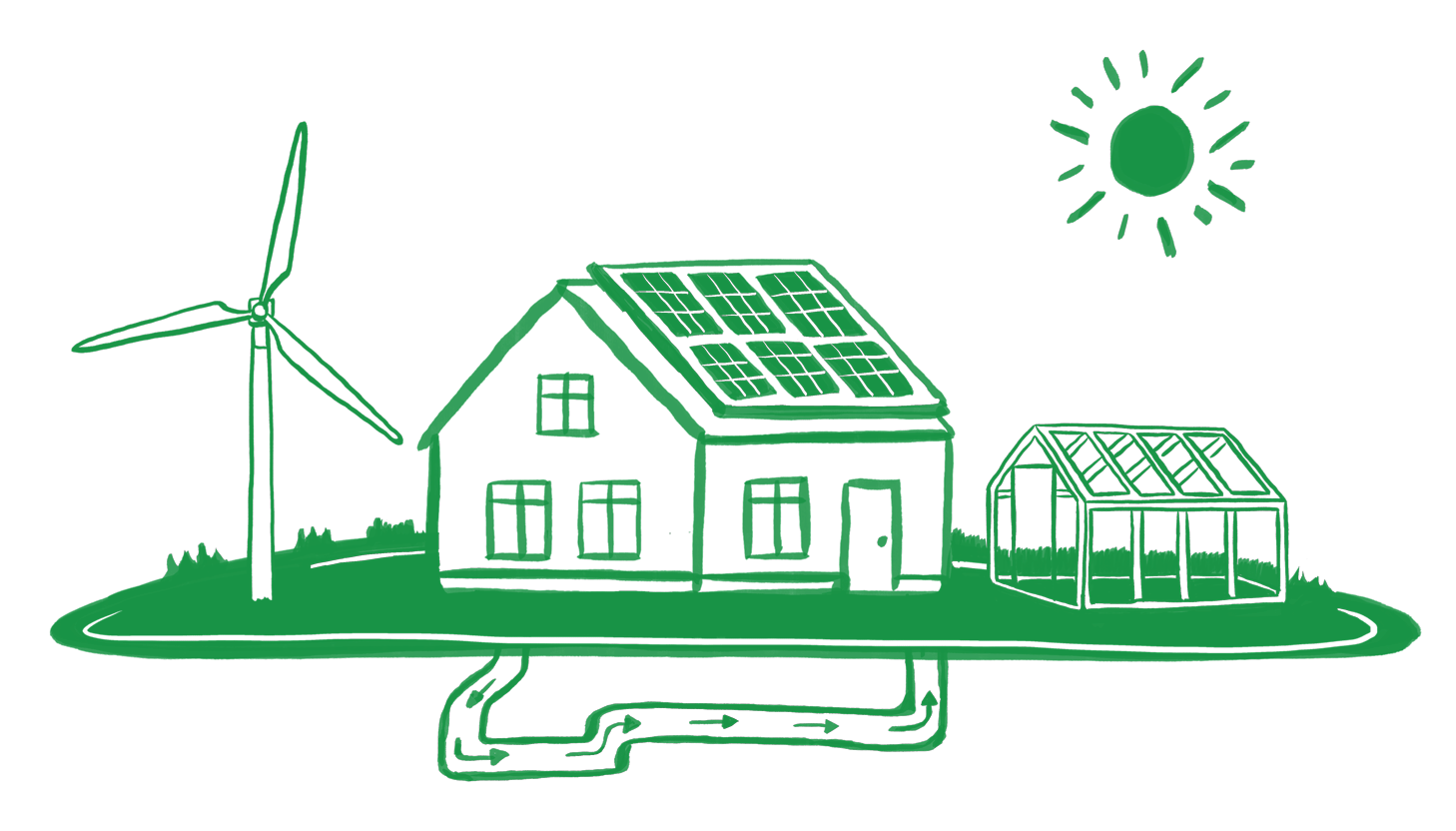
Join Our Campaign
The Power of our coalition comes from the strength and diversity of our member organizations who are committed to aligning and winning a Green New Deal in IL.
